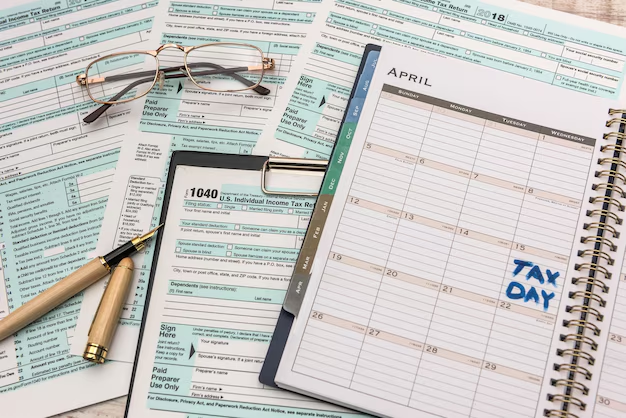Understanding Taxes in California: What's the Tax Percentage Really Like?
When it comes to living in California, one of the most common questions from residents and newcomers alike centers on taxes. "What is the tax percentage in California?" is a query that often comes with a sense of urgency, given the notorious reputation of California's tax system. This article aims to demystify California's tax landscape, providing a detailed overview across various tax types impacting residents.
California State Income Tax
Overview of California Income Tax
California's income tax system is known for its progressive nature, which means the more you earn, the higher the tax rate you face. The system is comprised of nine brackets, with rates ranging from 1% to 13.3%, the highest rate being one of the steepest in the nation. Here’s a breakdown of the brackets for single filers:
- 1% on the first $10,099 of taxable income.
- 2% on income between $10,100 and $23,942.
- 4% on income between $23,943 and $37,788.
- 6% on income between $37,789 and $52,455.
- 8% on income between $52,456 and $66,295.
- 9.3% on income between $66,296 and $338,639.
- 10.3% on income between $338,640 and $406,364.
- 11.3% on income between $406,365 and $677,275.
- 12.3% on income over $677,275.
- An additional 1% surcharge, known as the Mental Health Services Tax, is applied to incomes above $1 million.
Factors Impacting Your Tax Rate
Several factors can influence which tax bracket you fall into, such as:
- Filing Status: Single, Married, or Head of Household each have different brackets.
- Deductions and Credits: Utilization of tax deductions and credits can significantly lower your taxable income.
Sales Tax in California
How Sales Tax Works
Aside from income tax, California is also known for its statewide sales tax, which stands at 7.25%. This includes a state tax rate of 6% and a mandatory local rate of 1.25%. However, actual rates can vary dramatically across cities and counties.
Local Sales Tax Variations
- Los Angeles County: Typically around 9.5%.
- San Francisco: Around 8.625%.
- San Diego: Generally 7.75%.
Impact on Consumers
Sales tax applies to tangible personal goods like clothing, electronics, and furniture, and it's significant because it affects the day-to-day cost of living. Local governments can adjust rates further, so checking the local sales tax is critical for budgeting accurately.
Property Tax in California
California's Property Tax Structure
The property tax system in California is unique, largely due to Proposition 13, passed in 1978. The proposition capped property tax rates at 1% of the home’s assessed value, with only minor annual increases allowed unless the property is sold.
Implications for Homeowners
- Stable Tax Rates: Long-term homeowners benefit from fairly stable property tax bills.
- Reassessment on Sale: Properties are reassessed at current market values when sold, which can significantly raise taxes for new homeowners.
Considerations for Potential Buyers
- Factor in potential reassessment if purchasing a new home.
- Understand exemptions and rebates that might be applicable.
Special Taxes and Levies
Additional Taxes to Consider
California also imposes various other taxes and fees you may encounter:
- Gasoline Tax: One of the highest in the U.S., which contributes to higher fuel prices.
- Cigarette and Vaping Taxes: Additional taxes for tobacco and vape products.
- Vehicle License Fees: Calculated based on the car's value.
Strategies to Manage Tax Burden
Smart Tax Planning Tips
- Utilize Tax Credits and Deductions: Research state-specific credits, such as those for solar energy installation.
- Consult with a Tax Professional: Especially for those in higher brackets or with complex financial situations.
- Stay Informed on Policy Changes: Tax laws can change, impacting future rates and deductions.
Summary of Practical Takeaways
🔑 Key Insights:
- Income tax rates are progressive but can be mitigated with deductions.
- Sales tax varies locally, impacting everyday expenses.
- Property taxes are stable due to Proposition 13 but reassessment can increase costs for new buyers.
- Additional taxes exist (e.g., gasoline, cigarette) affecting overall cost of living.
Navigating California's Tax Systems
Understanding the numerous tax systems in California is crucial to effectively manage financial planning. Whether you're concerned about how sales tax will affect your shopping or what property taxes might do to your potential homebuying budget, being well-informed can lead to smarter decisions.
With every aspect of the tax code designed to fit California's unique economic landscape, residents must stay proactive and informed. By leveraging applicable deductions, staying abreast of policy trends, and possibly seeking professional tax advice, Californians can better navigate the complexities and enjoy what the Golden State has to offer.

Related Topics
- Am I Tax Exempt
- Are 401k Contributions Tax Deductible
- Are 529 Plan Contributions Tax Deductible
- Are Attorney Fees Tax Deductible
- Are Campaign Contributions Tax Deductible
- Are Charitable Donations Tax Deductible
- Are Church Donations Tax Deductible
- Are Churches Tax Exempt
- Are Closing Costs Tax Deductible
- Are Contributions To 529 Plans Tax Deductible
